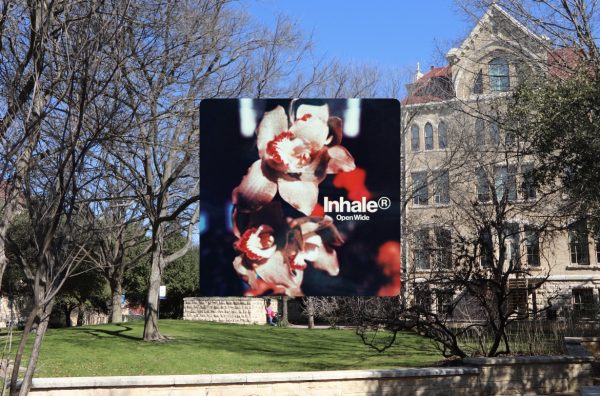Pinegrove further establishes their rock roots with fourth album
In much the same way that a flower blooms from its bed, New Jersey group Pinegrove has grown yet another introspective work to add to the collection, with their reserved and smooth fourth entry, titled “Marigold.”
“Marigold” signals yet another shift for the band since the release of their breakthrough album “Cardinal.” Where the album “Skylight” followed up “Cardinal” by taking the same abrasive, emo-country fusion and emotionally aware lyrics and calmed the music down a tad, “Marigold” attempts to smooth everything out. Frontman Evan Stephens Hall moves on from the old exploration of the external experience to the new internal struggle, one that is characterized by the feeling of stagnation.
The constant feeling of being trapped in familiar surroundings that somehow manage to make you feel lost is a sort of existential dread that Pinegrove had yet to tap into before “Marigold.”
On the track “Endless,” Hall expresses his dissatisfaction with that state of mind by saying, “I wake up and feel totally the same/I woke up the same as yesterday.”
Despite “Marigold” marking a departure from the themes of previous albums, the idea of wishing to connect with new people that was integral to “Cardinal” finds its way onto tracks such as “No Drugs,” where Hall opens by saying “ No drugs and alcohol today/I want to remember everything we talk about.”
The entire album feels cleaner than any of its predecessors, creating their most studio sounding album. One would think that a group or artist that grew on the back of a DIY/homebrewed sound would lose some edge by recording an album that sounds as clean as this. However, the polished sound of the vocals adds to the tone that Hall is promoting throughout the album. He keeps his voice reserved to go with his reserved lyrics.
While not experimental in the way that the band reaches out of their comfort zone, Pinegrove clearly explored song structure and time signatures, ranging from the chorus-less “Spiral,” which functions as a list for the entirety of its 56 second run, to the classic sounding “The Alarmist.” which features a 6/8 time signature.
Despite the downtrodden themes, Hall’s lyrics always seem to return to a hopeful point. The opening track, “Dotted Line,” uses its chorus to affirm this.“Cause I don’t know how/But I’m thinking it’ll all work out,” Hall sings. Similarly, the track “Endless” states, “And, well, it’s feeling pretty bad to me/But I don’t think it goes on endlessly.”
Pinegrove has created another album that fits in their library. While it contains no single song as universally likable as “Old Friends,” or as wholly good as the album “Skylight,” it accomplishes exactly what it sets out to do: show the continued growth of Hall as a songwriter and musician, along with the emotional growth he has experienced in the years since the band formed.










